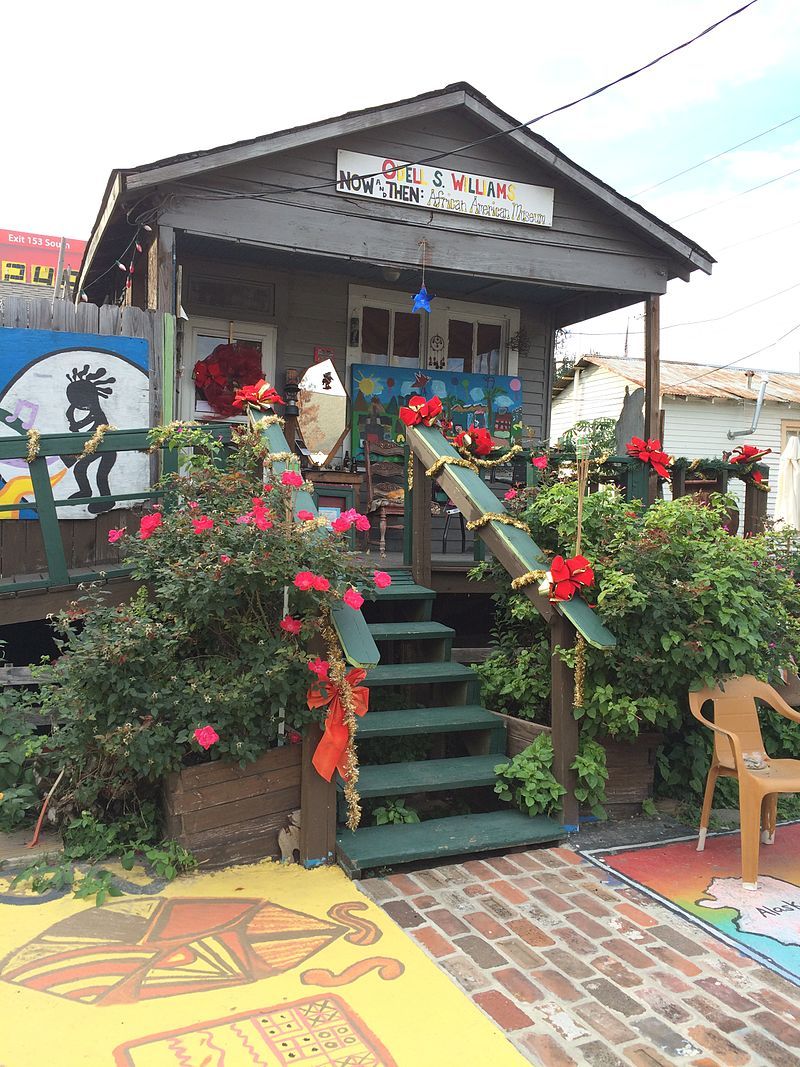Sadie Roberts-Joseph, Slain Activist, Showed How Museums Can Raise Up Their Communities
Baton Rouge police described the museum founder, whose death has been ruled a homicide, as a ‘tireless advocate of peace’
/https://tf-cmsv2-smithsonianmag-media.s3.amazonaws.com/filer/a2/5f/a25f5ba9-e731-4042-84bb-7f661aca03c2/sadie-roberts-joseph.jpg)
Sadie Roberts-Joseph, a Baton Rouge-based activist who founded the Louisiana capital’s only African-American history museum and worked tirelessly for her community, was found dead in the trunk of her car last Friday, July 12. She was 75. As an outpouring of grief and disbelief from locals, friends and family streams in, authorities are investigating her death, which has been classified as a homicide. On Tuesday, one of Roberts-Joseph's rental property tenants, Ronn Germaine Bell, was arrested and charged with first-degree murder. A motive has not been identified yet.
“This is senseless,” Shane Evans, chief of investigations for the Baton Rouge coroner’s office, told the New York Times’ Sarah Mervosh on Monday. “None of us understand why anybody would do this to an elderly lady who has done nothing but good for her community.”
Roberts-Joseph decided to launch the Odell S. Williams Now and Then African-American History Museum—now known as the Baton Rouge African-American Museum—because she believed that “If you don’t know where you came from, it’s hard to know where you’re going.”
The cultural institution features artifacts including a 1953 bus dating to the city’s public bus boycott in protest of racial segregation, three types of cotton once grown in the museum’s garden, and vibrant portraits of prominent locals. According to the Washington Post’s Alex Horton and Hannah Knowles, Roberts-Joseph opened the site in 2001; initially, the collection centered on artifacts contributed by a former teacher in the East Baton Rouge Parish, but over the years, Roberts-Joseph added exhibitions on topics such as African art, inventions created by African-Americans, and President Barack Obama.

In addition to founding the museum, which she ran with the help of a dedicated team of volunteers, she organized celebrations marking Juneteenth, a holiday commemorating the eradication of slavery in the United States, and spearheaded efforts to make the June 19 anniversary an official state holiday. Beatrice Armstrong-Johnson, one of Roberts-Joseph's 11 siblings, tells the Post that her sister also ran neighborhood trash cleanups, house repairs, food banks and clothing drives. Per a statement posted on Facebook by the Baton Rouge Police Department, the community leader—described as a “tireless advocate of peace in the community”—worked with authorities to launch the local Community Against Drugs and Violence organization, as well as host a bicycle giveaway at the museum.
“She was a total advocate of peace, love and harmony, and she died just the opposite,” Armstrong-Johnson says.
Lea Skene and Ellyn Couvillion of local newspaper the Advocate echo that sentiment, writing that Roberts-Joseph called for unity and togetherness aimed at helping communities “heal from the legacy of slavery and move forward.” In 2016, Roberts-Joseph told the paper, “We have to be educated about our history and other people's history. Across racial lines, the community can help to build a better Baton Rouge, a better state and a better nation.”
Roberts-Joseph grew up in Woodville, Mississippi. Her family later moved to Baton Rouge, where she studied education and speech pathology at two local colleges. She spent decades working as a certified respiratory therapy technician but dedicated most of her free time to improving the community by holding volunteer positions. This June, she organized what would be her last Juneteenth celebration, leading a procession to the Mississippi River to raise the holiday’s official flag.
In the wake of Robert-Joseph’s death, tributes have poured in from an array of individuals and organizations. State Representative C. Denise Marshall posted a Facebook statement honoring an “amazing [woman who] loved her history,” while Together Baton Rouge—a coalition of church congregations and community organizations—said, “While her death is a tragedy, it would be an even greater injustice to let her death overshadow her tremendous life.” The NAACP Baton Rouge Branch, the local police department and Baton Rouge Mayor Sharon Weston Broome also offered their condolences.
Roberts-Joseph is survived by her children, Angela Roberts Machen and Jason Roberts. In an interview with local news station WBRZ, the latter addressed his mother’s killer directly, saying, “You stole light. You stole a warm loving giving and caring woman and it wasn't just for her family. She cared for the city. She cared for you. Her life should not have ended that way. She did not deserve that, but she would want forgiveness for you.”
Authorities found Roberts-Joseph’s body in the trunk of her car, which was parked about three miles from her home, at 3:45 p.m. Friday. Armstrong-Johnson tells the Post she last saw her sister that same morning; she had stopped by to bake a loaf of bread because her own oven was broken and her sister lived just two doors down.
“Needless to say,” Armstrong-Johnson says, “the bread is still here.”
/https://tf-cmsv2-smithsonianmag-media.s3.amazonaws.com/accounts/headshot/mellon.png)
/https://tf-cmsv2-smithsonianmag-media.s3.amazonaws.com/accounts/headshot/mellon.png)